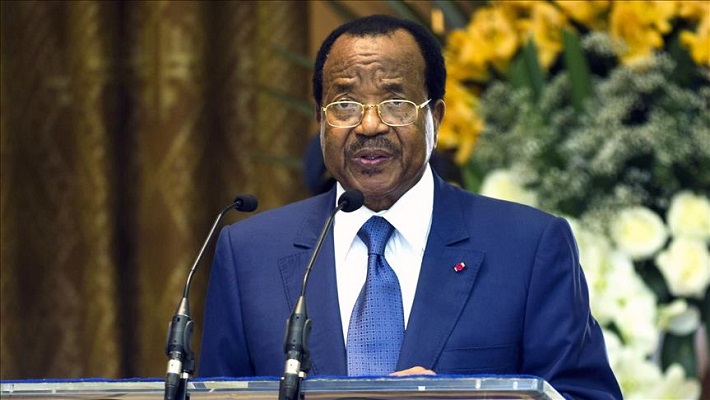
In a powerful open letter that has ignited national debate, Father Étienne Bakaba, a prominent Cameroonian Catholic priest, journalist, and singer, has publicly urged President Paul Biya to relinquish power and not seek re-election.
The 92-year-old leader, who has ruled Cameroon for over four decades, faces mounting calls from religious leaders and former allies to step aside amid concerns over his age, leadership vacuum, and the country’s deepening political malaise.
“You can’t do it anymore,” Father Bakaba wrote candidly, addressing the president’s frailty and perceived inability to govern.
He stressed that his plea was not rooted in constitutional law or party statutes but rather in “common sense,” appealing for a peaceful transition that allows new leaders to emerge.
“Give Cameroonians who have a healthy ambition to instill a new spirit in a new homeland the opportunity to prepare properly for a real election,” the priest urged.
Father Bakaba also condemned those within the ruling Cameroon People’s Democratic Movement (CPDM) who are pressuring Biya to run again, accusing them of wanting him to “die in power” and labelling them as “the real enemies of Cameroon.”
He pointed to the hardships facing ordinary citizens—“misery, corruption, tribalism, unemployment, crime”—as evidence that the current leadership has lost touch with the people.
Though many within Biya’s party remain silent, Bakaba claimed some believe the president is no longer fit for office but are “too afraid to speak out.”
He suggested their silence is driven by fear of repression, stating, “This is not a disavowal, it’s not a betrayal, it’s pure realism.”
Adding to the growing dissent, two long-serving cabinet ministers recently resigned and announced their candidacies for the upcoming October election.
Issa Tchiroma Bakary, former Minister of Employment and Vocational Training, declared that “there is no leadership,” citing the president’s prolonged absence from state affairs.
In a scathing 24-page letter, he vowed to dismantle the “broken system” of governance. Shortly after, Bello Bouba Maigari, Biya’s longtime ally and Minister of Tourism and Leisure, also resigned and joined the race.
Despite the ministers’ bold moves, Bakaba cast doubt on their credibility, predicting that they too have reached the end of their political careers.
He ended his letter with a heartfelt plea: “It is a prayer and a wish… It seems to me providential for the near future of our beloved homeland, Cameroon.”
Father Bakaba is not alone. Bishop Emmanuel Dassi Youfang of Bafia echoed similar sentiments, saying Cameroon needs a president “with the energy to visit various parts of the country in order to keep abreast of the problems of the people.”
Opposition leader and presidential hopeful Akere Muna joined the chorus, stating: “He has served the nation as President for 43 years. I don’t think he has anything more to offer and I think he deserves to go home and rest.”
As Cameroon approaches its presidential election, calls for Biya to exit the political stage grow louder—resonating from the pulpit, parliament, and the streets.



